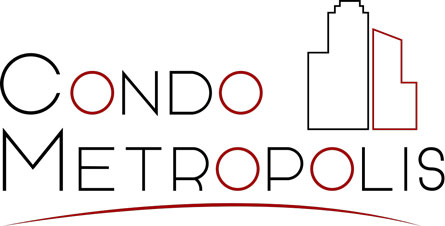Frequently Asked Condo Questions (FAQ)
What Exactly is a "Condo" Anyway!?
The word "condominium" does not describe a type of building, but rather a specific form of home ownership. Thus, any building from a villa to an apartment to skyscraper can be a "condo." The form of ownership you receive with your condominium is this: Most commonly, you own your unit from the drywall inwards, plus a share in the "common elements" of the remainder of the property, i.e. the pool, tennis courts, grounds etc. You pay for the upkeep of your share by way of your monthly maintenance fees (also called "Home Owner's Association" dues or "HOAs"). To protect the interests of each home owner, there may be some rules and regulations that prevent you from doing certain things like owning certain kinds of pets, painting your house a different color from the rest, and so forth. But provided your contract does not state otherwise, you can sell or lease your condo just like any other home.
The setting up of a condominium is governed by Florida Statute which establishes strict procedures for the creation, sale, and operation of condominiums.Why purchase a Florida condo /vacation home?
With a few notable downtown exceptions, condos in Florida are generally cheaper than houses. Condominiums are a great way to start out when you're young - and they're a great way to retire when you're not! Another advantage to Florida condo living is that most communities have onsite resort-style facilities like pools, tennis courts, fitness centers, and security, which make them versatile investments for out-of-state and overseas buyers. And because all the maintenance is taken care of, you'll never have to cut the grass, fix your own roof or clean the pool again!.
COA Basics
The Condo Owners Association (COA) is an important element of condominium ownership that provides each owner with a sense of personal comfort and security.
The HOA is responsible for the care and maintenance of all those "common elements" include landscaping, exterior paint, roofs, and also the general cleanliness of areas outside each owner's home.
An owner-elected board runs the HOA. At minimum, the Board consists of a President, Vice President, Secretary, Treasurer, and often another person who oversees all maintenance responsibilities. The Board members are your fellow condo owners. They are not paid.
Things to Consider Before Purchasing Your Condo:
- How much are the monthly HOA dues?
- What are the general rules of the HOA?
- Are any special assessments due now or in the near future?
- How strong are the reserves?
- Is the budget adequate?
A well organized HOA will have a strong impact on the day to day success of the project as well as ensuring a steady increase in its value. For a full analysis of what to consider before you purchase, see the Florida Department of Business and Professional Regulation's Guide to Purchasing a Condominium.
Insuring a Condo
Insuring a condominium is different from insuring a house through home insurance. The insurance for a house covers the entire house - from the top of the roof down to the foundation. When insuring a condo, your insurance need only cover the appliances, drywall, ceilings, floors and the interior. (You may need separate "contents insurance" to cover your own possessions and any renters will require their own insurance.)
The COA dues that are part of almost every condominium complex generally includes additional insurance that will cover the rest of the unit, i.e. the exterior of the building including the roof, siding, and foundation. All condominiums have certain rules and regulations that may change the requirements of the coverage you will need.
(407) 901-5161
Orlando Property Enterprises | All rights reserved
